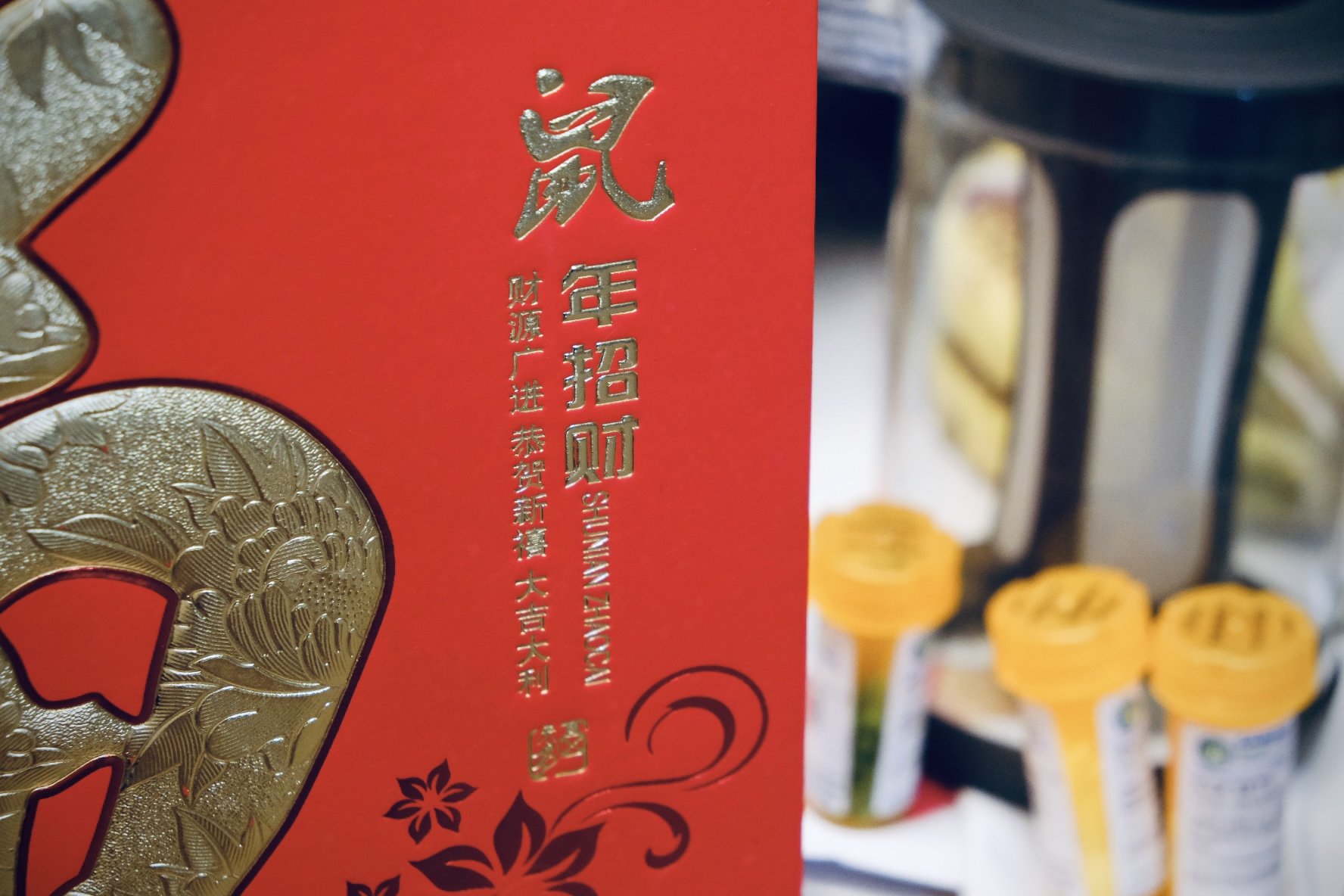Eastern Michigan University is proud to present this semester’s Graduate Thesis Exhibition! Featuring the work of soon to be MFA graduates, this exhibition will be on show in the University Gallery from April 4 - April 21. To look through the online exhibition, simply click on the artist’s name to be taken to their work!
Guanhua Yao
The population of Chinese immigrants in the United States has grown nearly seven-fold since 1980, reaching almost 2.5 million in 2018, or 5.5 percent of the overall foreign-born population. However, due to the Trump administration's Chinese exclusion policy and the outbreak of Covid 19, Chinese immigrants have faced multiple challenges in the past two years. The Coronavirus has led to worldwide anti-Chinese sentiment and xenophobia toward the Chinese or the Asian community as a whole. There has been a rise in anti-Asian hate crimes, in part, by inflammatory rhetoric and xenophobic behavior related to the coronavirus pandemic. Also, immigrants living in the U.S. have experienced a range of increased health and financial risks associated with COVID-19.
To weather this difficult time, many Chinese immigrants have resorted to unconventional measures, and those undocumented immigrants who are already on the verge of breaking the law face more severe challenges, so they also have to make some moves in the gray area to make a living.
In order to understand the living conditions of immigrants who have no status or who have to engage in "unconventional activities" for their livelihoods, I contacted them by establishing personal friendships. I fully respect their privacy.
My work will only be released with permission from the subject, and I deliberately keep their identity anonymous but record their stories and living conditions. Despite the many challenges and even attacks during the interview, I am still passionate about exploring the lives of that group of people. The purpose of the interview is not only to record their stories but also to leave traces of Chinese immigrants who strive to survive the epidemic to history.
Ella
Name: Ella
Gender: Female
Age:29
Stay in the US for more than 5 years
Ella is a student. In order to maintain her legal status in the United States, she has transferred to multiple schools. She originally planned to find a job after graduating in 2021, but due to the Trump and Biden administration’s unfriendly policies towards Chinese students, she thinks she may not be able to find a job after graduation, and she does not want to go to another school to maintain identity. Although Ella does not want to return to China because she has been struggling in the United States for so many years, if she is desperate in the end, returning to China to start a life again is her only choice. In addition, under the epidemic, the global economic situation is very sluggish. Many international students cannot afford the high tuition and living expenses, nor can they choose to drop out of school and return to their home country. So many students are caught in a dilemma. In order to make ends meet, some students have to take risks and embark on the road of illegal work.
Guanhua Yao, Never Give Up, Video.
Han
Name: Han
Gender: Male
Age:21
Stay in the US for more than 4 years
Han came to the United States through a Chinese service company in high school. The main purpose of choosing to complete high school in the United States is to get the opportunity to apply for a better university. Although Han was admitted to one of the highly ranked universities as expected, however exciting it is, he still has to face the fact that he could only see his parents once a year from the age of 16, and his parents had to work hard in China to pay for the high university tuition and his living expenses in the United States. Due to the impact of the epidemic and the purpose of making his ends meet, Han switched to working online by playing games and watching movies and TV works with customers on the internet. Although it sounds absurd, he does have many customers. These customers are mainly Chinese speakers, but they do not necessarily live in the United States. This situation brings Han's well-established life routine into a chaotic time arrangement. Currently, he often stays up late at night to perform services for his customers until the next morning. After the orientation, he will directly start the school courses and homework in the daytime. Afterwards, the schedule depends on whether there are new customers who need his service. If not, he will start to rest until the next customer comes to him. Long-term irregular work schedules and the lack of sleep have led to a decline in his immunity and neurasthenia. He can hardly sleep for a long time and has bleeding gums. In consequence, he must rely on drugs to maintain his health. Fortunately, he still has a legal identity and health insurance. The remuneration for serving customers is around $30 per hour, and sometimes there is a considerable tip, so he can basically meet his life needs through this way of working. Since he does not own a car and does not cook, most of the time, he calls for food delivery. In order to save transportation costs, he usually orders the delivery service once a day, which means he can eat fresh meals once a day, and eat leftovers for the rest of the time.
Guanhua Yao, The Day is Not Divided, Video.
Leo
Name: Leo
Age: 25
Stay in the US more than 5 years
Leo came to the United States to study in 2015. Due to the previous failure of the college entrance examination, he hoped to get himself a chance to change the future through studying abroad. Leo is currently working as an engineer in an auto parts company, but at the same time, he still needs to work part-time in a milk tea shop to earn living expenses. Of course, his current legal status does not allow working in a milk tea shop, but he has been doing it for about 3 years. The main reason is that he needs to reduce the financial burden of studying abroad as much as possible. Although the engineer's income is sufficient for daily life, Leo wants to save some money as a fund for future development. He is currently feeling anxious about the H1-B visa, especially with the pandemic and policies that have brought many negative effects. Thus, he swayed between going back to China and trying to stay in the United States. In addition to the uncertain future, Leo is also homesick. He has not seen his family for five years so far. Leo is very concerned about the living conditions of his family, especially after his family accident. As the only child in the family, he has to take on many responsibilities.
Lillian
Name: Lillian
Age:50
Stay in the US for more than 20 years
Lillian came to the United States to pursue graduate studies in 1992, when she was deeply impressed by the huge material living standards gap between China and the United States. After graduating with a master's degree, Lillian worked in a pharmaceutical company for 10 years and finally became a US citizen.
During her pursuit of US citizenship, she was unable to enter and leave the United States freely, which caused her and her husband to be separated for ten years.
When she finally got US citizenship, she returned to China to reunite with her family. In 2019, Lillian planned to return to the United States again to accompany her son to study because her son did not adapt to the Chinese education system. But due to the sudden outbreak of the epidemic, Lillian was again forced to live apart from her husband for two years. And she needs to face the pressure of educating her kid on her own.
Also, due to living in China for a long time, Lillian has lost the opportunity to keep her job in the United States. So when the epidemic restricted all activities, she could only achieve inner balance by studying Buddhism.
Guanhua Yao, Evanescence of Life, Video.
Lucy
Name: Lucy
Age: 23
Stay in the US more than 7 years
Lucy has obtained The Green Card, so she does not need to worry about the legality of her identity. But the issues of racial discrimination and identity are what she currently needs to face. According to Lucy's experience, her Asian face brought both advantages and troubles when she tried to get a job. Some companies give her a lot of extra and unreasonable work because of her Asian face. Or because of the stereotype, some hope that she will work hard but without officially hiring her. The only benefit of being Asian is that many companies that do business with Asian people want her to be a customer service staff. However, it was not the job she wanted, and identity issues often brought embarrassment when interacting with clients. Besides, she often feels the anxiety caused by her identity. Lucy is often unclear on how to treat friends from China, especially those undocumented immigrants. She doesn't want to hurt those who are struggling. Knowing that many friends envy her legal status and living conditions, she is afraid of complaining about the setbacks in life when getting along with friends who have no status. This situation makes Lucy feel lonely.
Mr. Wei
Name: Mr. Wei
Age: N/A
Stay in the US more than 17 years
Mr. Wei brought his children to the United States to reunite with his ex-wife and worked in a massage parlor to live a life. After the divorce, he raised two daughters alone in the United States. To have more income, he quit his job in a massage shop and switched to the decoration industry. Since Mr. Wei has no educational background related to decoration, he can only work with colleagues in the decoration team, basically doing the part that no one wants to do and earning less money. After a year of study, he left the team and started his own business. Mr. Wei’s clients are mainly Chinese, on the one hand, due to language restrictions, on the other hand, because he believes that there is a sense of security in dealing with Chinese people (mainly the anxiety caused by cultural differences). With continuous efforts, Mr. Wei's life has reached the level of the middle-class. At least he no longer has to worry about food and loans. But because he is the main source of family income, he must take risks to work during the epidemic, even though he does not want it. When asked if Mr. Wei has ever regretted coming to the United States, after a period of silence, he replied that he did not know.
Guanhua Yao, I am Not Afraid of Life, Video.
Gefang Zhang
Gefang Zhang, Flyer 1, Flyer.
Gefang Zhang, Flyer 2, Flyer.
Gefang Zhang, You are Not a Good Fit, Poster.
Gefang Zhang, You are Not a Good Fit, Poster.
Gefang Zhang, Young Pioneers, Poster.
Gefang Zhang, GaoKao, Poster.
Gefang Zhang, Fuck Off, Poster.
Gefang Zhang, IDENTITY, Poster.
Gefang Zhang, Anti-Capitalism, Poster.
Gefang Zhang, Betrothal Gifts, Poster.
Gefang Zhang, Excuse Me, Poster.











































